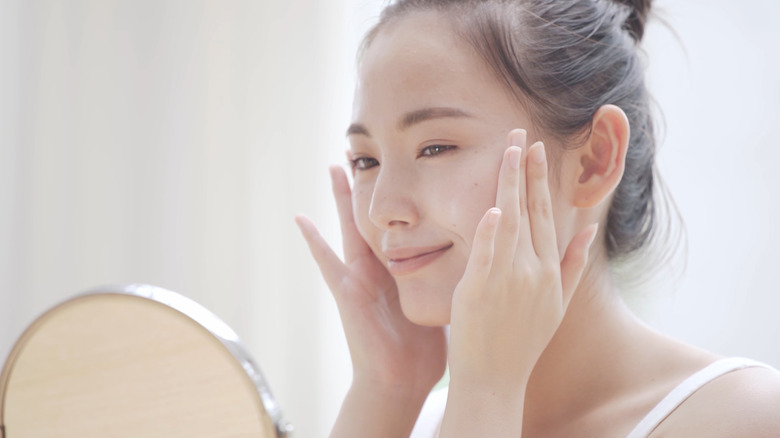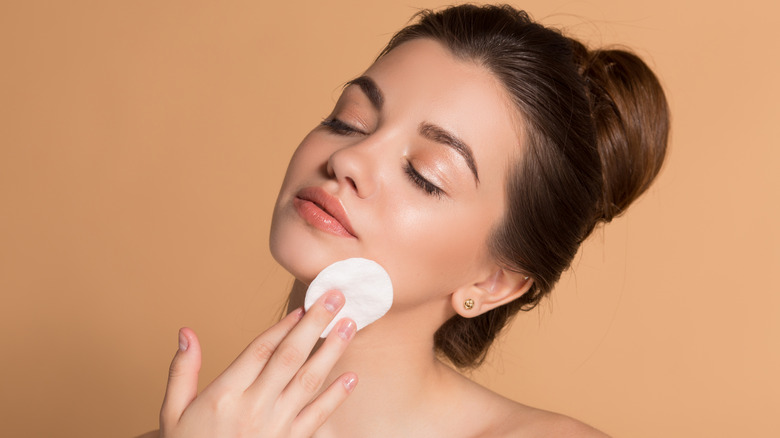Astringent Vs. Toner: Which Is Better For Acne-Prone Skin?
For literal decades, we've been told that a proper skincare routine includes three steps: a cleanser, a toner or astringent, and a moisturizer, in that order; cosmetic giants like Clinique have been touting this forever and selling their own three-step routines as a set. And while modern skincare routines tend to include more steps (like serums and sunscreens), many still rely heavily on the big three as the foundation of their skincare.
But if you have acne, it can be a little trickier to pick products that work with your skin rather than against it (via Well + Good). You don't want to pile on too much thick, greasy moisture and clog your pores, but you also don't want to dry out your skin with too many harsh chemicals or alcohols, thereby causing it to produce more oil.
So if you have acne and want to keep a toner or astringent as part of your routine, which one should you use? And really, what's the difference between the two, anyway?
Choosing between astringent and toner
Toner was first created as a step to help remove excess oil and facial cleanser from the skin, back when most people used cold creams to remove makeup and cleanse the skin. To achieve this, the tended to contain alcohol (via Byrdie). Now, however, toners are generally the same consistency as water and are alcohol-free. They still help to remove excess debris or makeup or anything your cleanser left behind, but the do it much more gently. They can also help the next step of your routine, whether a serum or acne treatment, absorb better.
Astringents are also water-based and meant to help remove anything cleansing left behind, but like the toners of the past, astringents are designed specifically to remove excess oil, and as such, they often contain alcohol. Therefore, if you are using an acne treatment gel or cream, it is probably best to stick with toners rather than astringents, as the drying effects of the alcohol in the astringent, coupled with the often-drying acne treatments, can create irritation or excessive dryness.

